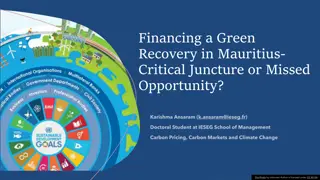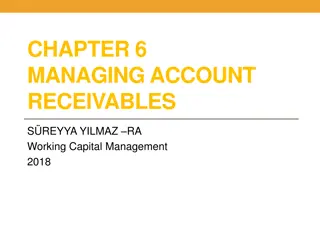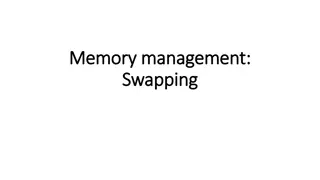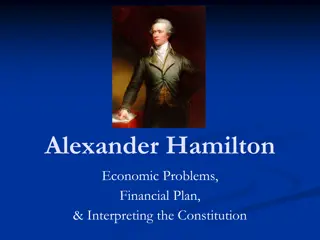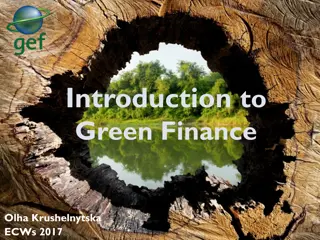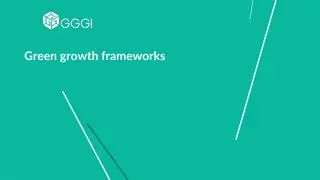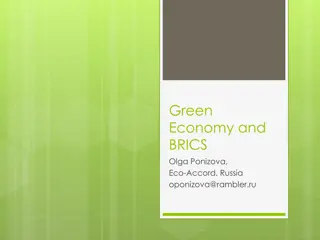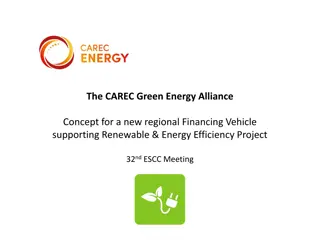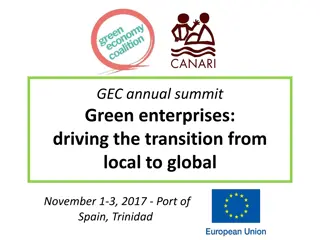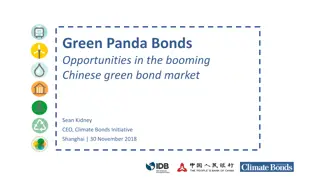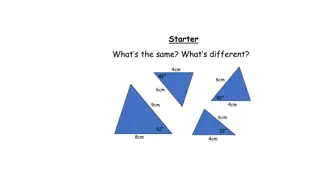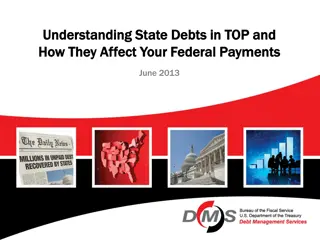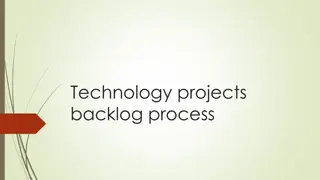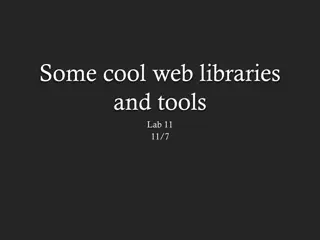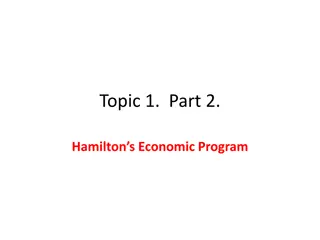Discussion on Swapping Debts for Green Projects - 2024 HLPF Side Event
Middle-income and developing countries face a critical debt situation, hindering their development tasks. This virtual side event during the 2024 HLPF aims to discuss swapping debts of poor nations for green projects to address the financing gap and promote climate action. Experts will explore solutions to the debt crisis and propose ways to redirect resources towards impactful projects instead of debt repayments.
Download Presentation

Please find below an Image/Link to download the presentation.
The content on the website is provided AS IS for your information and personal use only. It may not be sold, licensed, or shared on other websites without obtaining consent from the author.If you encounter any issues during the download, it is possible that the publisher has removed the file from their server.
You are allowed to download the files provided on this website for personal or commercial use, subject to the condition that they are used lawfully. All files are the property of their respective owners.
The content on the website is provided AS IS for your information and personal use only. It may not be sold, licensed, or shared on other websites without obtaining consent from the author.
E N D
Presentation Transcript
Virtual side event during the 2024 HLPF Topic: "Discussion of swapping debts of poor and developing countries in exchange for green projects" Date: 10 JULY Virtual side event 2024 HLPF Time: 10AM EDT/ 14.00 UTC Organizers: Public Foundation NASH VEK together with the External Aid Monitoring Group
ChinaraAitbaeva Director Public Foundation Nash Vek, External Aid Monitoring Group
Middle-income countries are home to 75% of the world's population and 62% of the world's poor. At the same time, middle-income countries account for about a third of global GDP and are the main engines of global growth. Developing countries are currently facing a critical debt situation. Debt servicing has increased by 50 percent over the past three years, widening the financing gap for development tasks. Achieving significant advances in statistics, financing and policies for gender equality, and overall development in general, requires sufficient resources. According to the OECD, poor and developing countries received more than $220 billion in Official Development Assistance last year. These recipient countries are currently facing debt repayment quandaries due to the global crisis. It would be wise to encourage donor countries to initiate a full-scale debt swap in exchange for green projects that will have a positive impact on climate change. During this side event, the issues of debt of poor and developing countries and the possibility of their debt for green projects will be discussed. Instead of directing money to Development, poor and developing countries are paying off debts. We propose to discuss ways out of the debt crisis and propose specific Solutions.
Alisher Moidunov Speaker External Aid Monitoring Group Member Main points of speech Data for African countries
Never Mujere, I am a researcher in climate change issues, have published work in the subject and presented papers at international conferences Speaker Environmental Mgt Trust Zimbabwe Main points of speech Benefit sharing, win-win situations, Reasons for indebtedness in developing countries, exploitation of pristine environments in developing nations by the developed countries. Who will benefit from the swap.
Anna Rychkova, Speaker External Aid Monitoring Group Member Data for Southeast and Central Asia
Barkat Ullah Maruf, I have been working on this campaign at national and international platforms for the last 20 years. I have arranged and led many national and local level advocacy against debt and poverty in Bangladesh. Speaker COAST Foundation. Main points of speech Debt increases the poverty and obstructs national progress. Bangladeshe is forced to increase price of electricity, VAT and other indirect taxes, and are prescribed to implement environment-destructive projects.
I thank everyone who responded to this topic. 18 people said they would like to act as a speaker on this topic
Most participants noted that this topic is relevant. And about 67% responded that their country is experiencing a peak in foreign debt payments.
Least Developed Countries 45 Low Income Countries 2 Lower Middle Income Countries 35 Upper Middle Income Countries - 59
According to the classification of the World Bank (219 countries) High income 87, Low income 25, Lower middle income 51, Upper middle income 56
About 70 countries are facing peak foreign debt payments. About 30%
All speakers will speak now. I think everyone is participating here who shares the idea of exchanging debt for green projects. We may not support the actions of some country authorities in relation to civil society to shrinking space for CSOs. But, we support our countries. We want development for our countries. To ensure that no one is left behind, opportunities for Development must be provided. Then, everyone will be given the opportunity to speak (maximum 3 minutes) to shape your ideas and recommendations for states, donors and CSOs. Please answer the following questions when presenting.
Taking this opportunity, and due to limited time, I ask everyone to answer the following questions: (Please also leave answers and comments to these questions in the chat) What are your specific proposals and recommendations for donors and states to exchange debts for green projects? What should civil society do to make debt swaps for green projects effective?







